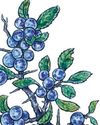George Plumptre learns how the proximity of a new motorway turned around the fortunes of a historic hotel and its garden.

The gardens that enjoy a winter forte put form ahead of flowers; they’re all about lines and symmetry, monochrome shapes, silhouettes and patterns. All of this, ideally, where a balance is revealed with both house and garden. Few do it better than the garden at Great Fosters, in Surrey, where the immaculate designs of the original early- 20th-century garden have received an injection of new energy in the past 25 years.
This recent intervention highlights Great Fosters’ second feature of special interest: it’s an example of how a historic garden can absorb the intrusions of modern-day infrastructure while maintaining both its visual appeal and atmosphere.
There are two distinguished garden design names associated with Great Fosters, W. h. Romaine-Walker (1854–1940) and the contemporary designer Kim Wilkie—although, according to the author David Ottewill, in his definitive book on The Edwardian Garden, Romaine- Walker ‘was one of those architects whose natural flair for stylish eclecticism and pastiche has caused his name to be erased from historical accounts of the period’.
Looking at the work at Great Fosters, that judgement seems a little harsh. In 1918, Romaine-Walker was commissioned by the hon Gerald Montagu to revive the distinguished Tudor house he’d just bought, which had become derelict during the First World War, and to lay out a suitable garden. Romaine-Walker noted that his task was ‘to design such a garden as would re-create the old-world charm of the place and be interesting all the year round’.
هذه القصة مأخوذة من طبعة December 07 2016 من Country Life UK.
ابدأ النسخة التجريبية المجانية من Magzter GOLD لمدة 7 أيام للوصول إلى آلاف القصص المتميزة المنسقة وأكثر من 9,000 مجلة وصحيفة.
بالفعل مشترك ? تسجيل الدخول
هذه القصة مأخوذة من طبعة December 07 2016 من Country Life UK.
ابدأ النسخة التجريبية المجانية من Magzter GOLD لمدة 7 أيام للوصول إلى آلاف القصص المتميزة المنسقة وأكثر من 9,000 مجلة وصحيفة.
بالفعل مشترك? تسجيل الدخول

Kitchen garden cook - Apples
'Sweet and crisp, apples are the epitome of autumn flavour'

The original Mr Rochester
Three classic houses in North Yorkshire have come to the market; the owner of one inspired Charlotte Brontë to write Jane Eyre

Get it write
Desks, once akin to instruments of torture for scribes, have become cherished repositories of memories and secrets. Matthew Dennison charts their evolution

'Sloes hath ben my food'
A possible paint for the Picts and a definite culprit in tea fraud, the cheek-suckingly sour sloe's spiritual home is indisputably in gin, says John Wright

Souvenirs of greatness
FOR many years, some large boxes have been stored and forgotten in the dark recesses of the garage. Unpacked last week, the contents turned out to be pots: some, perhaps, nearing a century old—dense terracotta, of interesting provenance.

Plants for plants' sake
The garden at Hergest Croft, Herefordshire The home of Edward Banks The Banks family is synonymous with an extraordinary collection of trees and shrubs, many of which are presents from distinguished friends, garnered over two centuries. Be prepared to be amazed, says Charles Quest-Ritson

Capturing the castle
Seventy years after Christian Dior’s last fashion show in Scotland, the brand returned under creative director Maria Grazia Chiuri for a celebratory event honouring local craftsmanship, the beauty of the land and the Auld Alliance, explains Kim Parker

Nature's own cathedral
Our tallest native tree 'most lovely of all', the stately beech creates a shaded environment that few plants can survive. John Lewis-Stempel ventures into the enchanted woods

All that money could buy
A new book explores the lost riches of London's grand houses. Its author, Steven Brindle, looks at the residences of plutocrats built by the nouveaux riches of the late-Victorian and Edwardian ages

In with the old
Diamonds are meant to sparkle in candlelight, but many now gather dust in jewellery boxes. To wear them today, we may need to reimagine them, as Hetty Lintell discovers with her grandmother's jewellery